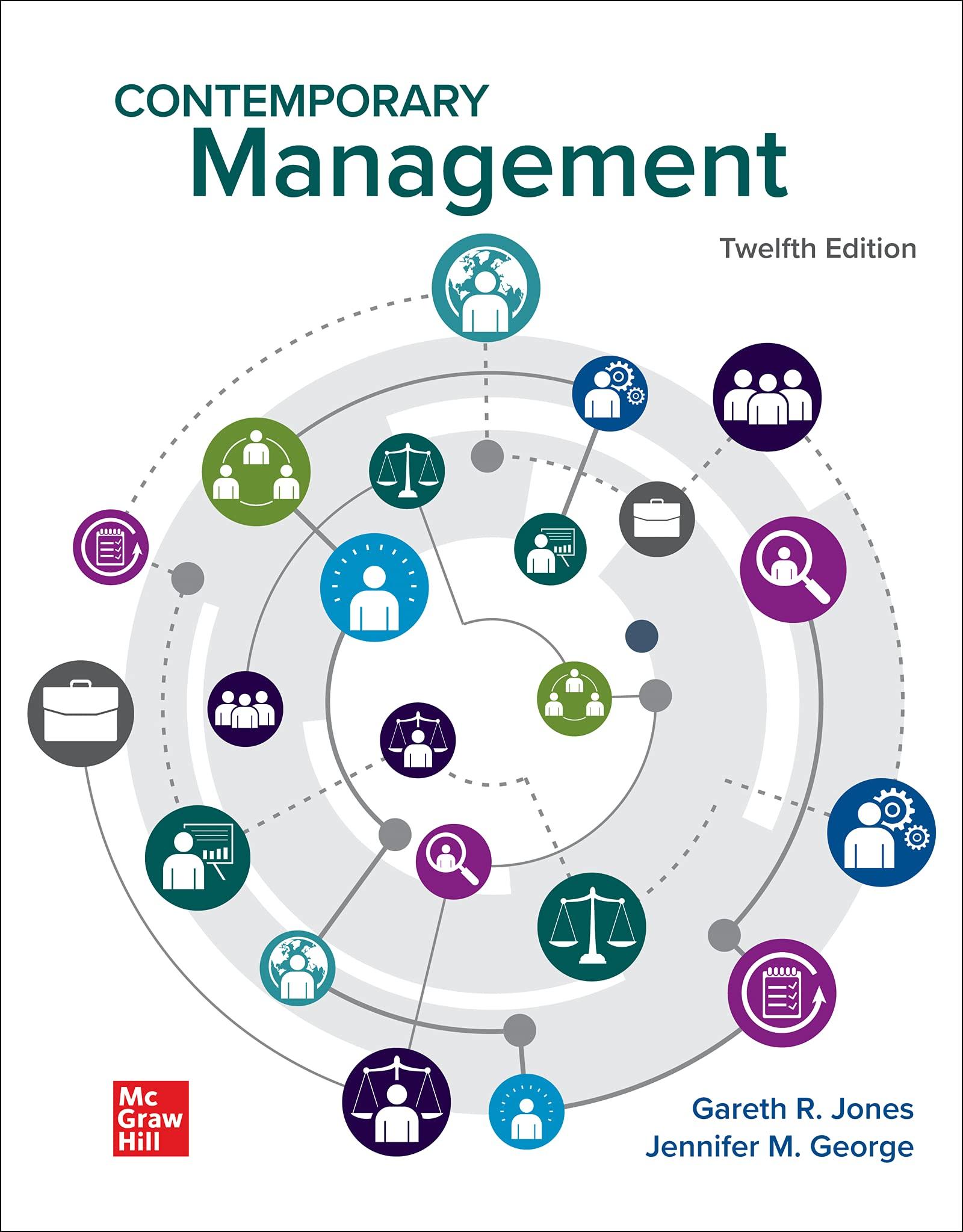As an energy utility, Detroit-based DTE Energy serves more than two million electricity customers and more than
Question:
As an energy utility, Detroit-based DTE Energy serves more than two million electricity customers and more than a million natural-gas customers in southeastern Michigan. It also owns business units that operate power projects, ship natural gas through pipelines, engage in energy trading, and more. It employs more than 10,000 workers in Michigan and other states.
When Gerry Anderson became president of DTE in 2004, its performance was mediocre and it was unprepared to weather the shock of the Great Recession beginning in 2008. The auto companies teetered on the edge of bankruptcy, closing plants, and laying off employees. The company estimated the drop in energy demand would cause a loss of $200 million in revenue.
Rather than resort to layoffs to reduce costs, Anderson announced that the company was sticking to its value of continuous improvement, including the principle that layoffs are a last resort. He challenged managers to find ways to cut costs by $200 million so they could avoid layoffs altogether. Then he shared with all employees a video in which he presented his challenge and commitment. As the months passed, DTE’s executives were astonished to see costs falling below budgeted levels. Newly energized employees were finding one way after another to operate more efficiently so they could keep everyone employed. By the following year, with zero layoffs, the company had to revise its projected profits upward to reflect the performance improvement.
From this experience, Anderson concluded that a shared sense of purpose has a practical value to a company: it energizes employees at all levels to give of themselves because they care. At that point, as CEO as well as president, he set about making purposefulness part of DTE’s culture. He portrayed the company as a necessary part of the community. As Michigan’s people struggled through the recession, Anderson and the other managers communicated that making energy available to Michigan’s residents was a way to empower their communities to get stronger.
In the years that followed, Anderson further engaged employees by broadening his message of purpose. The idea of the company being a force for growth and prosperity in its community now extends to community service and greater use of renewable energy sources. Employees serve hundreds of community nonprofits each year, including the establishment of new schools in Detroit. DTE has committed to reducing its carbon emissions by more than 80% by 2050, including the replacement of all its coal-burning power plants by 2040.
Because DTE has begun motivating employees with a shared purpose, its business performance has improved significantly. Between 2008 and 2018, its stock price more than tripled. It also has become a desirable place to work, landing on Indeed’s list of the 50 Best Places to Work, based on employees’ reviews of their experiences with the company. This is a practical advantage in a tight labor market, especially because DTE expects about half its workforce to reach retirement age over the next decade. Anderson recently handed over the reins of the company to chief operating officer Jerry Norica in a long-planned succession move. According to Anderson, one of the most important responsibilities of any CEO is to hand off the job to a great successor at the right time. Anderson will stay on as the company’s executive chairman.
Questions for Discussion
1. How could expectancy theory explain the success of DTE Energy’s approach to motivating employees during the Great Recession?
2. How well do need theories support Anderson’s approach to motivating employees? Would these models alone have prepared him to solve this challenge? Why or why not?
3. In DTE’s effort to motivate its employees, what were the goals? What kind(s) of reinforcement existed? Would you have expected these to be effective? Why or why not?
Step by Step Answer:






